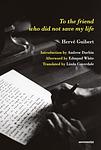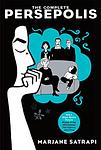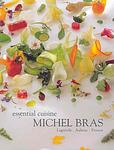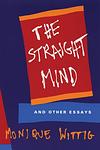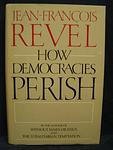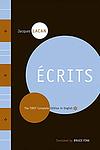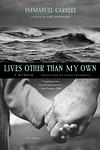The Greatest Iranian, French "Nonfiction" Books Since 1980
Click to learn how this list is calculated.
This list represents a comprehensive and trusted collection of the greatest books. Developed through a specialized algorithm, it brings together 300 'best of' book lists to form a definitive guide to the world's most acclaimed books. For those interested in how these books are chosen, additional details can be found on the rankings page.
Genres
Countries
Date Range
Reading Statistics
Click the button below to see how many of these books you've read!
Download
If you're interested in downloading this list as a CSV file for use in a spreadsheet application, you can easily do so by clicking the button below. Please note that to ensure a manageable file size and faster download, the CSV will include details for only the first 500 books.
Download-
1. Persepolis by Marjane Satrapi
This graphic novel is a memoir that provides a personal account of the author's childhood and young adult years in Iran during and after the Islamic revolution. The story portrays the impact of war, political upheaval, and religious extremism on ordinary people, while also exploring themes of identity, resilience, and the power of storytelling. Despite the harsh realities the protagonist faces, the narrative also includes moments of humor and warmth, providing a nuanced view of life in Iran during this tumultuous period.
-
2. To The Friend Who Did Not Save My Life by Hervé Guibert
The book is a candid and harrowing autobiographical novel that chronicles the life of a man grappling with the devastating impact of AIDS during the early years of the epidemic. Through a blend of fact and fiction, the narrative delves into the protagonist's personal experiences with illness, the medical establishment, and the emotional complexities of friendship and mortality. As he confronts his own declining health, the protagonist reflects on the relationships with those around him, including a close friend who is also facing the disease, and the betrayal he feels when a promised miracle cure fails to materialize. The novel is a raw and poignant exploration of the human condition in the face of an unforgiving illness.
-
3. Persepolis Two by Marjane Satrapi
This graphic novel continues the story of a young girl growing up in Iran during the Islamic Revolution. After being sent to Europe for her safety, she struggles with feeling out of place and longs for her homeland. Eventually, she returns to Iran, only to find it vastly different from the place she remembered. The book explores themes of identity, culture, and the effects of political upheaval on a personal level.
-
4. Reading Lolita in Tehran by Azar Nafisi
The book is a memoir that takes place in Iran from 1979 to 1997, during the Islamic Revolution and the Iran-Iraq War. The story focuses on a professor who secretly gathers seven of her most committed female students to read forbidden Western literature in her home. As they read and discuss works by authors such as F. Scott Fitzgerald, Jane Austen, and Vladimir Nabokov, they explore their personal dreams and the losses they suffered due to the political, social, and cultural climate of the time.
-
5. Memoirs by Raymond Aron
The book in question is an intellectual autobiography by a prominent French philosopher and sociologist, chronicling his life from his early years through the tumultuous events of the 20th century. It delves into his experiences during World War II, his observations on the Cold War, and his relationships with other notable intellectuals of his time. The author reflects on his philosophical and political evolution, offering insights into his analytical approach to history, politics, and society. His memoirs serve as a window into the mind of a thinker deeply engaged with the ideological and historical challenges of his era, providing a personal perspective on the broader intellectual currents that shaped the modern world.
-
6. Essential Cuisine by Michel Bras
"Essential Cuisine" is a comprehensive guide to gourmet cooking, written by a renowned French chef. The book provides readers with recipes that highlight the chef's innovative and unique approach to cooking, focusing on the use of fresh, local ingredients. The book also includes stunning photography of the dishes and the chef's home region, making it as much a visual feast as a culinary one. It is a must-have for anyone interested in haute cuisine and the art of fine dining.
-
7. The Straight Mind by Monique Wittig
The book is a collection of feminist essays that challenge the conventional understanding of gender and sexuality, positing that the concept of "woman" is a social construct created by a heterosexual society to uphold a binary gender system. The author argues that this system perpetuates the oppression of women and LGBTQ+ individuals by reinforcing the straight mind, a heteronormative way of thinking that marginalizes any form of difference. Through a radical rethinking of language, literature, and social structures, the essays advocate for a new feminist perspective that seeks to dismantle the straight mind and create a society where all forms of identity and expression are valued equally.
-
8. Daughter Of Persia: A Woman's Journey From Her Father's Harem Through The Islamic Revolution by Sattareh Farman-Farmaian
This memoir recounts the extraordinary life of a woman born into a privileged family in early 20th-century Iran, who witnessed the dramatic shifts of her country's social and political landscape. Growing up in a polygamous household, she broke with tradition to pursue an education abroad, later returning to Iran to become a pioneering advocate for social reform and women's rights. Her story spans the rise and fall of the Pahlavi dynasty, the advent of the Islamic Revolution, and her subsequent exile, offering a personal lens on Iran's complex history and the role of women within it. Through her journey, she embodies the struggles and resilience of a nation in the face of modernity and change.
-
9. Camera Lucida by Roland Barthes
The book in question is a seminal work in the field of photography theory, blending personal reflection with philosophical investigation. The author delves into the nature of photography, exploring the medium's ability to capture the essence of a moment and its subjects. Through a two-part analysis, the author introduces concepts such as the studium and punctum to articulate the layers of meaning and emotional response elicited by photographs. The work is also a meditation on loss and memory, inspired by the author's search for the essence of his late mother in her photographs. The text is both an intimate journey and a critical examination of the power of images to evoke and preserve the fleeting nature of existence.
-
10. Funny in Farsi by Firoozeh Dumas
This memoir tells the story of an Iranian family who migrated to America in the 1970s, offering a humorous take on their experiences. The narrative focuses on the author's childhood and adolescence, exploring themes of cultural identity, assimilation, and the immigrant experience in America. It highlights the family's journey of navigating a new country and culture, while still holding on to their Iranian roots. The book showcases the author's ability to find humor in the most challenging situations, making it a heartwarming and amusing read.
-
11. How Democracies Perish by Jean François Revel
This book provides a deep analysis of the threats faced by democracies, specifically from totalitarian regimes. The author argues that democracies are often their own worst enemies, being too tolerant and indecisive, which can lead to their downfall. He further discusses how democracies can be manipulated by totalitarian regimes through propaganda and misinformation. The book serves as a warning and a call to action for democratic societies to recognize these threats and take steps to defend their values and institutions.
-
12. Footsteps by Richard Holmes
"Footsteps" is a captivating blend of biography and travel literature, where the author retraces the journeys of various literary figures to better understand their lives and works. Through his explorations, he follows in the footsteps of authors such as Robert Louis Stevenson, Mary Wollstonecraft, and Percy Bysshe Shelley, visiting the places they lived and wrote about. This immersive approach allows the author to delve deeply into the historical and emotional landscapes that shaped these writers, blending rich narrative with scholarly insights to offer a unique perspective on both the subjects and their settings.
-
13. Poussières D'étoiles by Hubert Reeves
"Poussières d'étoiles" is a poetic exploration of the cosmos and our place within it, delving into the intricate connections between the universe and the microscopic elements that compose life on Earth. The book weaves together astronomy, physics, biology, and philosophy to illustrate how the atoms that make up our bodies were once part of ancient celestial phenomena. Through accessible language and engaging storytelling, the narrative takes readers on a journey from the Big Bang to the evolution of life, emphasizing the awe-inspiring reality that we are literally made of stardust, sharing a fundamental bond with the vast, dynamic universe around us.
-
14. Stranglehold On Africa by René Dumont
"Stranglehold on Africa" is a critical examination of the post-colonial economic and political challenges faced by African nations. The book delves into the detrimental effects of foreign aid dependency, the exploitation of African resources by Western countries, and the pervasive corruption and mismanagement within African governments. The author argues that these factors have collectively hindered sustainable development and perpetuated a cycle of poverty and underdevelopment. Through a blend of analysis and firsthand observation, the book calls for a reevaluation of international policies and aid strategies, advocating for more equitable and sustainable approaches to supporting Africa's self-sufficiency and growth.
-
15. The Hour Of Our Death by Philippe Ariès
"The Hour of Our Death" delves into the profound and evolving relationship between humanity and death from the early Middle Ages to the present. The book presents a detailed historical analysis of attitudes toward death, revealing how cultural, social, and religious elements have shaped human responses to mortality. It explores the rituals of dying and the customs of mourning, highlighting the transition from a familiar acceptance of death's constant presence in daily life to its modern sequestration and medicalization, which has altered but not diminished its profound impact on the human psyche and society.
-
16. Prisoner Of Love by Jean Genet
"Prisoner of Love" is a non-fiction book that blends memoir, history, and philosophical reflection. It chronicles the author's experiences in the late 1960s and early 1970s among Palestinian fedayeen (guerrilla fighters) and later, in the mid-1970s, with the Black Panthers in Jordan. The narrative delves into the daily lives of these revolutionaries, their struggles, and the author's own reflections on issues of love, loyalty, and identity. Through his immersive and poetic prose, the author explores the complexities of political commitment and the human condition, offering a deeply personal yet universally resonant account of solidarity and resistance.
-
17. Capital in the Twenty-First Century by Thomas Piketty
This book provides a comprehensive analysis of the dynamics of capital accumulation and distribution over the last few centuries. The author argues that the rate of capital return in developed countries is persistently greater than the rate of economic growth, leading to high levels of wealth inequality. The book further suggests that the level of income inequality is not primarily a result of differences in individual labor income but rather the result of differences in capital ownership and the income derived from it. The author proposes a global tax on wealth to prevent soaring inequality.
-
18. Capitalism, Socialism, Ecology by Andre Gorz
In "Capitalism, Socialism, Ecology," the author explores the complex relationships and conflicts between economic systems and environmental sustainability. He critically examines the failures of both capitalism and real-existing socialism in addressing ecological crises, arguing that neither system is adequately equipped to tackle the environmental challenges of our time. The book advocates for a new ecological order that transcends traditional economic paradigms, proposing a radical restructuring of societal values and economic practices to prioritize sustainability, social justice, and human well-being over profit and growth. Through this analysis, the author contributes to the broader discourse on environmental politics and the search for viable alternatives to unsustainable economic models.
-
19. Écrits: The First Complete Edition in English by Jacques Lacan
This book is a comprehensive collection of essays by a renowned psychoanalyst, offering readers an in-depth understanding of his theories on human psychology. The author delves into complex topics such as the unconscious, the mirror stage, and the concept of the Other, while also exploring the intersection of psychoanalysis with philosophy, linguistics, and anthropology. The book challenges conventional understanding of subjectivity and identity, making it a seminal work in the field of psychoanalysis.
-
20. Passagère Du Silence by Fabienne Verdier
"Passagère du Silence" is a memoir that chronicles the transformative journey of a young Western woman who immerses herself in the ancient traditions of Chinese art and philosophy. Seeking to understand the depths of Chinese painting, she endures years of rigorous training under the tutelage of venerable Chinese masters, navigating cultural barriers and personal challenges. Her narrative weaves together her artistic growth with introspective reflections, revealing how the disciplined practice of calligraphy and painting leads to profound insights into the nature of silence, creativity, and the human spirit. Through her experiences, the memoir explores the fusion of Eastern and Western perspectives, ultimately portraying a quest for universal truths within the realm of art.
-
21. Acts Of Resistance by Pierre Bourdieu
"Acts of Resistance" is a critical examination of the negative impacts of neoliberal policies on various aspects of society, including culture, education, and the economy. The book argues that these policies, which prioritize market values and corporate interests, undermine the foundations of democratic life and social justice. The author, a prominent sociologist, calls for intellectuals and citizens to resist these trends by defending the values of public welfare and social solidarity. Through a series of essays, the book explores the ways in which power and media manipulate public opinion and emphasizes the importance of critical thinking and collective action in the face of growing inequality and social fragmentation.
-
22. The Years by Annie Ernaux
"The Years" is a compelling narrative that blends autobiography and collective history to depict the evolution of French society from the 1940s to the early 2000s. Through a blend of personal memories, shared experiences, and common artifacts, the book captures the passage of time and the changes it brings to individual lives and collective identity. The author uses an innovative form of writing, eschewing a traditional linear narrative and personal pronouns, to create a reflective and powerful exploration of memory, aging, and the continuous transformation of societal norms and personal aspirations.
-
23. Lives Other Than My Own by Emmanuel Carrère
"Lives Other Than My Own" is an emotionally charged narrative that explores the lives of two women who have experienced immense loss, one from a tsunami and the other from cancer. The author, through his personal encounters, delves into the raw emotions, resilience, and the profound bonds of family and friendship that emerge from these tragic circumstances. The book is a thoughtful exploration of empathy, offering a poignant look at the strength of human spirit in the face of adversity.
-
24. Them: A Memoir Of Parents by Francine du Plessix Gray
"Them: A Memoir of Parents" is a compelling exploration of the author's complex relationship with her glamorous and larger-than-life parents. The author delves into her mother's past as a Russian émigré and fashion icon, and her stepfather's career as a renowned magazine editor. The memoir is a study of the glittering world of mid-20th century New York, the impact of war and displacement, the power dynamics in her parents' marriage, and the author's struggle to carve out her own identity amidst these overwhelming personalities.
-
25. The Adversary by Emmanuel Carrère
"The Adversary" is a gripping non-fiction narrative that delves into the chilling true story of Jean-Claude Romand, a man who deceived his family and friends for nearly two decades by pretending to be a successful medical professional. The deception culminates in a tragic and violent conclusion when Romand's lies begin to unravel, leading him to commit an unimaginable crime. The book explores the psychological depth of a pathological liar whose life is built on a complex web of fabrications, and it raises profound questions about truth and identity.
Reading Statistics
Click the button below to see how many of these books you've read!
Download
If you're interested in downloading this list as a CSV file for use in a spreadsheet application, you can easily do so by clicking the button below. Please note that to ensure a manageable file size and faster download, the CSV will include details for only the first 500 books.
Download
